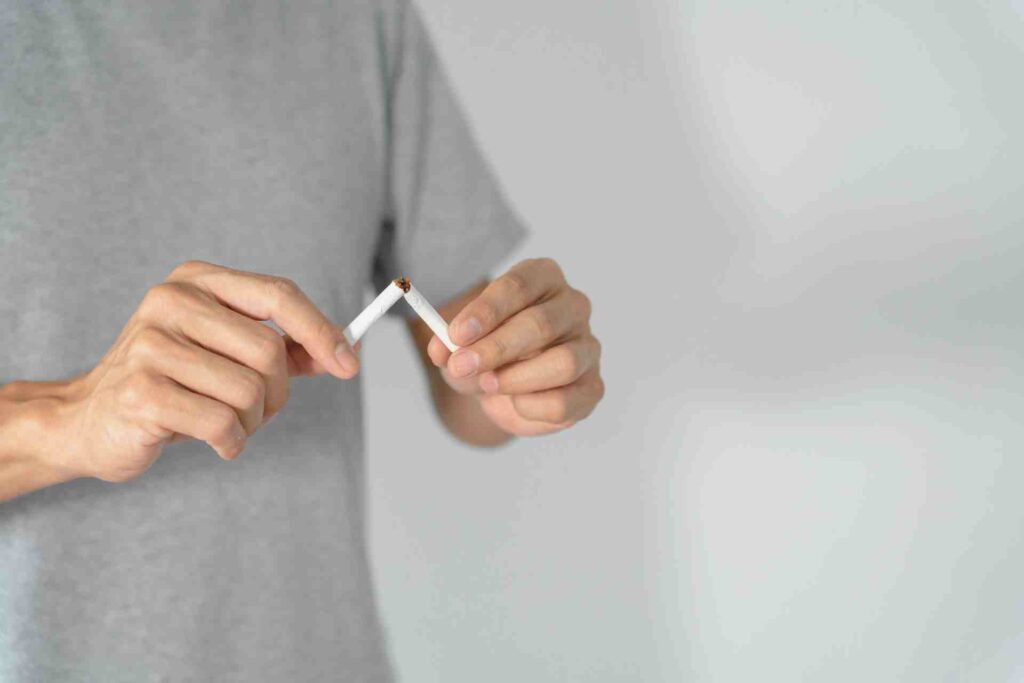Quick answer: Most people recover from wisdom teeth removal in three to four days, but full healing can take up to two weeks. You can speed up recovery by resting, using ice packs, avoiding straws, eating soft foods, and following your dentist’s aftercare instructions closely.
What Affects Wisdom Teeth Recovery Time?
There’s no one-size-fits-all when it comes to healing after wisdom teeth removal. Some people bounce back in a few days, while others need closer to two weeks.
A big factor is how many teeth were removed and whether any of them were impacted. Impacted teeth, especially if they’re stuck under the gums or growing at an angle, can make recovery more involved.
Your age matters too. Younger patients often heal faster because the roots of their teeth aren’t fully developed, and their bodies tend to recover more quickly.
Timing also plays a role. Recovery can vary depending on when wisdom teeth come in and how far along they are when removed.
And here’s something a lot of people don’t realize. Not everyone gets wisdom teeth. So if you don’t have them, you may not need to go through this recovery process at all.
12 Tips to Speed Up Wisdom Teeth Recovery
1. Prioritize Rest and Recovery

Rest is your best friend after surgery. The more you slow down, the quicker your body can start repairing.
For the first few days, skip workouts, cleaning, and anything else that gets your heart rate up. Use extra pillows to keep your head elevated when you’re resting or sleeping. This simple change can help ease swelling and reduce pressure around your jaw.
2. Use Ice Packs Early
Cold compresses are a simple way to bring down swelling and make those first few days more manageable. Apply ice packs to your cheeks in short intervals (fifteen minutes on, fifteen minutes off) during the first 24 to 36 hours after surgery.
There’s even research to back this up. One study found that cryotherapy applied on the first day after mandibular third molar removal (read: wisdom teeth) can help manage swelling and support recovery.
3. Take Pain Meds as Prescribed
Pain management is key during the first couple of days. Stick to what your dentist recommends, whether it’s a prescription or something over the counter like ibuprofen.
If the pain is unbearable, feels like it’s getting worse instead of better, or if it becomes difficult to manage, see your dentist right away.
4. Protect the Blood Clot
That blood clot forming at the extraction site is your body’s way of healing. Dislodging it can lead to a painful condition called dry socket.
To avoid that, skip the straws, don’t spit forcefully, and steer clear of smoking. Gentle, consistent care during those first few days is important for preventing dry socket.
Dry socket is most likely to occur within the first three to five days after surgery. Once you’ve passed that window without issues, the risk drops significantly.
5. Maintain Gentle Oral Hygiene

You can start (gently) brushing your teeth again the day after surgery, but skip the surgical sites for now. Be mindful and use a soft-bristled toothbrush to avoid irritating the area.
After the first 24 hours, begin rinsing with warm salt water a few times a day to keep your mouth clean and reduce bacteria. Just be careful not to swish too forcefully while the area is still healing.
Most people can ease back into their full oral care routine after about a week, once the risk of disrupting the clot or irritating the gum tissue has passed.
6. Stick to Soft, Nourishing Foods
Eating soft foods helps protect the healing site and prevents irritation or injury while your mouth is still sensitive.
Think mashed potatoes, smoothies, yogurt, scrambled eggs, and broths. You’ll want to avoid anything crunchy, chewy, or spicy for the first several days.
7. Stay Hydrated, But Be Careful
Water is one of the best things you can give your body during recovery. It keeps your mouth clean, supports healing, and helps you bounce back faster.
But not all drinks are safe right after surgery. Carbonated beverages can disrupt the healing site and increase your risk of dry socket.
8. Avoid Smoking and Vaping

Smoking is one of the fastest ways to delay healing. It:
- reduces blood flow to the surgical site
- raises the risk of infection
- significantly increases the chances of developing dry socket
Vaping after tooth extraction may seem less harsh, but it carries similar risks. The suction created while inhaling can dislodge the blood clot, just like smoking or using a straw. Plus, nicotine and other chemicals in vape products can irritate the tissue and slow down the healing process.
9. Use Gauze Pads as Directed
Gauze pads help control bleeding and protect the surgical site in those first few hours after surgery. Bite down gently and keep the gauze in place as directed by your dentist.
It can be tempting to check the extraction site or switch the gauze too frequently, but that can actually slow healing. Let the clot stabilize, and only change the gauze when it becomes soaked or you’re told to.
By day two, you likely won’t need gauze at all. Just focus on keeping the area clean and resting.
10. Watch for Signs of Trouble
A little discomfort after surgery is normal, but it shouldn’t get worse over time. If you notice sharp or increasing pain, swelling that doesn’t go down, fever, or a bad taste in your mouth, don’t try to wait it out.
These could signal infection or dry socket, and catching them early makes a big difference.
Trust your gut. If something doesn’t feel right, it’s always okay to call your dentist and check in.
11. Eat for Healing

Food plays a bigger role in recovery than most people realize. Choosing soft foods that are rich in nutrients can help your body heal faster and keep inflammation down.
Focus on things like smoothies with leafy greens, mashed sweet potatoes, soft scrambled eggs, or brothy soups with blended veggies. These kinds of meals give your body the tools it needs to rebuild tissue and fight off infection.
Skip the sugar and processed snacks while you heal. They can increase inflammation and slow down recovery.
12. Support Healing with Great Oral Habits
As your mouth starts to feel better, getting back to your normal brushing routine is a great sign that things are healing well.
Just be sure you’re using products that support long-term oral health. Choosing the right toothpaste to prevent cavities can help protect the rest of your teeth while your surgical sites continue to recover.
A strong daily routine now means fewer dental issues later.
FAQs About Wisdom Teeth Recovery
How can I recover faster from wisdom teeth removal?
Rest, stay hydrated, and stick to soft foods for the first few days. Follow your pain management plan and avoid anything that could disrupt the healing site, like straws or smoking. Icing your cheeks early and practicing gentle oral hygiene also helps speed things up.
How to make a wisdom tooth hole close faster?
The socket will close on its own, but you can support the process by avoiding anything that might dislodge the blood clot. Keep the area clean with warm saltwater rinses, eat soft (mushy) foods, and get plenty of rest. Healing varies, but most holes start to close within one to two weeks.
Why is day 3 the worst after wisdom teeth?
Swelling usually peaks around day three. This is also when inflammation can feel more intense, especially if you’ve started resuming normal activities. Keep using ice packs and stick with your pain meds as directed. It usually starts getting better from here.
Do upper wisdom teeth heal faster?
Yes, they often do. Upper wisdom teeth are typically easier to remove and less likely to be impacted, so the healing time can be shorter compared to lower wisdom teeth. You may still have some discomfort, but it’s typically milder and resolves more quickly.
When is dry socket no longer a risk?
The highest risk of dry socket is between days two and five after surgery. Once the blood clot is stable and the gum tissue starts to heal over, the risk drops significantly. By day seven, most patients are out of the danger zone.
What is the most painful day of wisdom teeth recovery?
For most people, day two or three tends to be the most uncomfortable. This is when swelling and soreness reach their peak. If the pain suddenly worsens after improving, reach out to your dentist to rule out dry socket or infection.
How many teeth do most adults have, including wisdom teeth?
A full adult set includes 32 teeth, assuming all four wisdom teeth are present.
Can wisdom teeth cause headaches before they’re removed?
Yes, they can. When wisdom teeth push against nearby teeth or grow in at an angle, the pressure can trigger tension in the jaw that radiates upward. The link between headaches and wisdom teeth is more common than you might think.
Which teeth are wisdom teeth anyway?
Wisdom teeth are your third molars, located at the very back of your mouth on both the top and bottom. If you need a quick refresher, this breakdown of the names of different teeth shows exactly where they fall in your dental lineup.
Key Takeaways
- Recovery from wisdom teeth removal typically takes a few days to two weeks.
- Rest, ice packs, soft foods, and good hygiene are your top recovery tools.
- Protect your blood clot and avoid anything that could cause dry socket.
- The right nutrition and oral care make a big difference.
- Reach out to your dentist if pain or swelling worsens after the first few days.
Follow @joycethedentist on Instagram for daily dental inspo and expert advice.





















